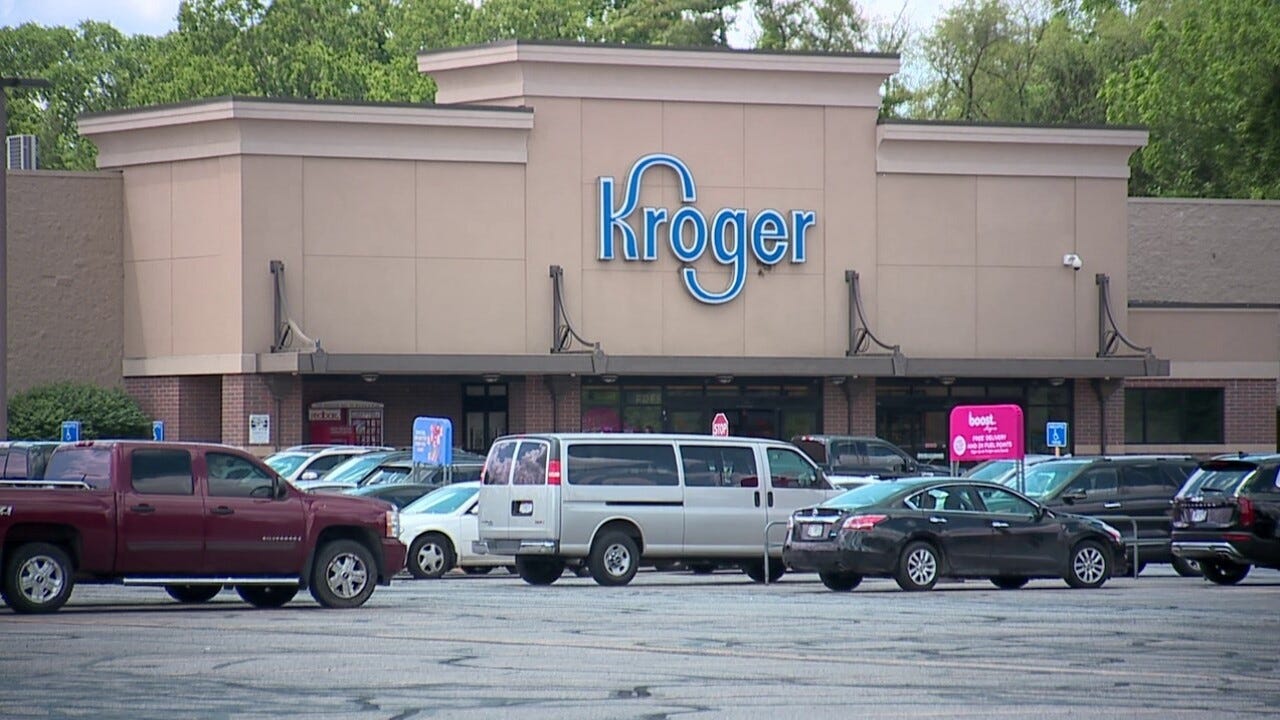Union workers at supermarkets such as Albertsons, Safeway and Kroger are seeking improved work conditions and wages and many are authorizing strikes as a way to get their demands.

How to store food properly in your kitchen
Make your groceries last longer by storing food properly.
Problem Solved, Problem Solved
Grocery workers in five states have authorized strikes in an escalating and evolving series of labor actions against major supermarket chains, Albertsons and Kroger.
In Colorado, members of striking United Food and Commercial Workers Local 7 wore placards saying “Please Do Not Patronize Safeway” and “Employees on Unfair Labor Practices Strike,” as they picketed at two Denver-area Safeway stores on Tuesday, June 24, to demand better staffing and higher wages. This comes after other local union members went on strike June 15 and picketed Albertsons and Safeway stores in Estes Park, Fountain, Pueblo, Littleton, and a distribution center in Denver, the union said.
The Boise, Idaho-headquartered Albertsons owns over 2,200 retail stores nationwide, including Safeway supermarkets.
The supermarket giant and the UFCW Local 7 had been negotiating a new contract since December 2024, before the previous one expired in January. During that time, UFCW Local 7 members went on strike at Kroger-owned King Soopers and City Market stores in the Denver metro area after that contract expired and negotiations failed. The two sides have yet to reach an agreement.
“Early on in negotiations, Safeway/Albertsons had shown signs of wanting to reach an agreement with workers, but instead the company has linked arms with King Soopers and City Market in seeking concessions from workers and retirees on fixed incomes,” UFCW Local 7 said in a press release.
Albertsons is facing labor strife in at least four other states. And in Indianapolis, UFCW Local 700 authorized a strike on May 31 when it voted down a four-year contract with Kroger.
Kroger has since said it will close 60 stores, and the union has bargaining sessions planned for June 25.
Collectively, there’s more than 100,000 grocery workers potentially on “the brink of a strike at the same time,” said UFCW Locals 324 and 770 Bargaining Committee in a press release on June 11. “Should the workers call a strike, it could create the largest grocery strike in modern history, and a major labor disruption for two of the nation’s largest grocery chains this summer, their busiest season of the year.”

Kroger to close 60 underperforming stores after failed Albertsons merger
Amid plans to shut 60 stores, Kroger commits to new openings and employee relocations, navigating challenges after the attempted merger with Albertsons.
Scripps News
States with looming potential supermarket strikes
In Colorado, UFCW Local 7 said it could expand strikes after initially starting in just four cities to give the public time “to understand the problems these workers are facing, allow Safeway/Albertsons time to understand the seriousness of the workers’ resolve, and at the same time reduce the hardship on shoppers and workers alike that result from a wide-spread strike.”
Here’s where strikes are happening or have been authorized:
- Colorado: Stores where workers have gone on strike and begun picketing has grown to nearly two dozen, including an Albertsons store in Aurora and additional Safeway stores in Boulder, Colorado Springs and Grand Junction, according to UFCW 7.
- California: Nearly 45,000 members of UFCW 324 and 770 in Southern California on June 11 authorized strikes at grocers including Albertsons and its Pavilions and Vons stores, as well as Kroger-owned Ralphs, according to UFCW 324. Bargaining sessions are planned for June 25-27.
- Idaho: UFCW Local 555 members in Boise and Nampa authorized an unfair labor practice strike during a June 15-16 vote, the union says. No strike date has been set, and negotiations are ongoing. The union, representing more than 35,000 workers including some in Oregon, southwestern Washington and Wyoming, has charged Albertsons with threatening to fire an employee once a settlement is reached because he fought for better wages. “Just like grocery workers across the country, we’re demanding the wages needed to support our families and communities, and to retire here, too. Albertsons has no right to threaten employees who won’t settle for less,” said UFCW Local 555 president Dan Clay in a statement.
- New Mexico: Unfair labor practice charges were filed against Albertsons and Kroger-owned Smith’s with the National Labor Relations Board on behalf of grocery workers in New Mexico, according to UFCW Local 1564, which has more than 3,700 members. And on June 20, union members authorized strikes, which could happen as soon as June 29, the day after the current contracts expire, UFCW Local 1564 president Greg Frazier told the Albuquerque Journal. The union’s negotiating committee did reach a tentative agreement with Smith’s on June 24 and awaits a vote by members, according to UFCW Local 1564.
- Washington: Puget Sound area members of UFCW 3000 in western Washington are voting this week on a new contract with stores including Albertsons, Safeway and Kroger-owned Fred Meyer. The tentative agreement came after the union authorized a strike on June 12.
What to know about a possible strike. What could it impact?
If strikes continue to spread, stores will remain open, staffed by managers or temporary workers. But coordinated strikes at stores in multiple states could multiply the effect on the parent companies, said Paul Clark, a professor of labor and employment relations at Penn State University.
Picketing in front of supermarkets has a different effect than pickets at, say, a steel mill or other industrial site, he said. In the case of stores, “the picket line is designed both to tell the employees we’re on strike don’t go to work, but also to tell the community, the shoppers, please don’t cross our picket line and patronized this business because they’re being unfair to us,” Clark said.
“So this is all part of the union trying to put pressure on the company, (and) the company trying to hold the line and get the best deal they can for the company,” he said.
“It looks like the two of them are pretty locked in, and they’re probably going to see who, in fact, in the next week or two, you know, is hurting to the greater degree,” Clark said. “They’re sort of stuck in a sort of deadlock where they’re both trying to put pressure on one another and seeing who’s going to blink first.”
Why are grocery workers looking to strike?
While individual local unions may have separate demands, in general, workers want better wages and work conditions, including improved staffing. Understaffing has contributed, union leaders say, to a recent report compiled by Consumer Reports, along with The Guardian and the Food & Environment Reporting Network (FERN), into grocery overcharges at Kroger stores including Fred Meyer, Harris Teeter and Ralph’s. The outlets state in the report that the investigation was begun after Colorado grocery workers alleged price errors during labor negotiations.
The report found shoppers often paid full price for items advertised as discounted or on sale. “Chronic understaffing in grocery stores prevents the company from making sure the prices on the shelves match the price a customer is paying at the register,” said UFCW Local 7 president Kim Cordova at the time. “When Kroger dictates that workers’ hours be cut in these stores, it is customers who pay the price.”
Kroger told Consumer Reports the pricing errors were a “few dozen examples across several years out of billions of customer transactions annually” and that “the characterization of widespread pricing concerns is patently false.”
Another factor, unions say, is that in the wake of a failed merger of Albertsons and Kroger, which was quashed in December 2024, the retailers are “trying to squeeze workers and customers,” Cordova told The Pueblo Chieftain on June 16. “They made this mess, this whole debacle, and they are ganging up on us.”
Albertsons said charges of unfair labor practices “are without merit,” in a statement to USA TODAY. “We respect our employees’ right to engage in collective bargaining and are negotiating in good faith to reach agreements that are fair to our employees, benefit our customers and keep our company competitive.”
Mike Snider is a reporter on USA TODAY’s Trending team. You can follow him on Threads, Bluesky, X and email him at mikegsnider & @mikegsnider.bsky.social & @mikesnider & msnider@usatoday.com
What’s everyone talking about? Sign up for our trending newsletter to get the latest news of the day







